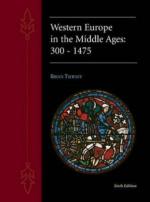|
This section contains 276 words (approx. 1 page at 300 words per page) |

|
By the sixth century, the Roman Empire in the west had ceased to exist. It was replaced by a series of Germanic kingdoms historians usually refer to as the "successor states." Politically, these new kingdoms were a distinctive mixture of both Roman and German elements. The political structure of the Roman Empire, although complex, was well suited to such a large and centralized political entity. For centuries, governance was in the hands of various legislative bodies, including a senate (senatus) and several councils (comitiae). Membership in most of the legislative bodies, especially the senate, depended on an individual's wealth and/or social rank. Both the senate and councils were deliberative bodies, passing laws binding on all citizens and noncitizens living within the empire. Ultimately, however, it was the emperor who ruled the Roman state. The emperor's power was universal and absolute, reaching even into the...
|
This section contains 276 words (approx. 1 page at 300 words per page) |

|




